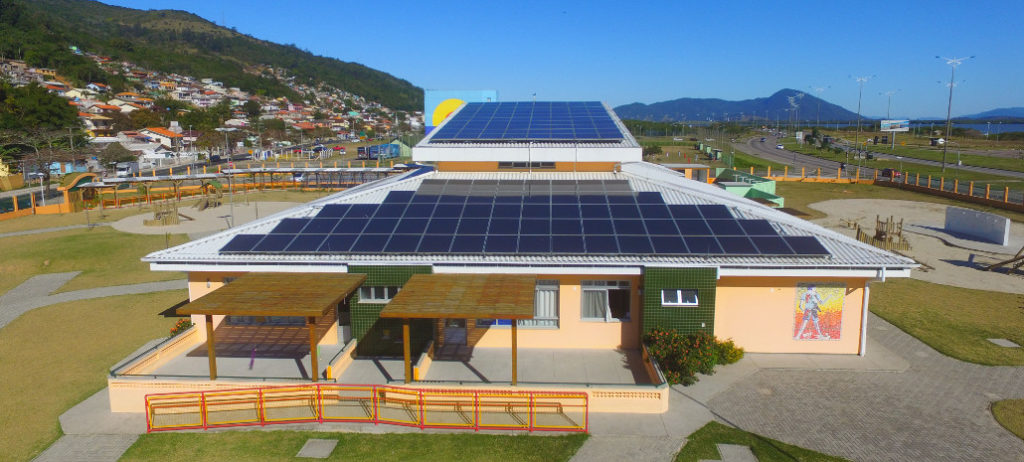Brazil has just reached the historical mark of 250 MW of installed power in distributed solar photovoltaic systems. According to new figures provided by the Brazilian PV association ABSOLAR, Brazil currently has 27,803 PV systems connected to its grid, adding more than R$ 1.9 billion (518 million dollars) in accumulated investments since 2012, while being distributed around all regions of the country.
The residential segment has the largest share, accounting for around 77.4% of total number of installations. Next, there are companies in the sectors of commerce and services (16%), rural consumers (3.2%), industries (2.4%), public authorities (0.8%), other entities such as public services providers (0.2%), and public lighting (0.03%).
In terms of installed capacity, consumers in the commerce and services sectors have the largest share with a percentage of 42.8%, followed closely by residential consumers (39.1%) and industries (8.1%).
With regard to location, currently, the State of Minas Gerais leads the national ranking with 22.9% of the installed capacity in the country, followed by Rio Grande do Sul (13.9%), São Paolo (13.5%), Ceará (5.9%) and Santa Catarina (5.9%).
The executive president of ABSOLAR, Rodrigo Sauaia, highlights that the growth of the micro distributed solar systems has been driven by three main factors: the strong reduction of more than 75% in the price of solar energy throughout the last decade; the strong increase in electricity rates for Brazilian consumers; and the increase in awareness and socio-environmental responsibility of consumers.
Popular content
“We celebrate with optimism this historic milestone for the solar photovoltaic source in Brazil, with the certainty that we will have a strong growth of the sector in the coming years and decades. Brazil has more than 82 million consumer units and a growing interest of the population, of companies and also of public managers in taking advantage of their roofs, facades and parking lots to generate local energy “, Sauaia added.
The net metering legislation was issued by the Brazilian government in 2010. In 2016, the Ministry of Energy and Mines also introduced a package of measures to improve net metering conditions at a national level. The measures include, along with improved financial conditions for project loans, an increase of the size limit for projects under net metering to 5 MW.
Furthermore, the government is supporting distributed generation through Convention 16/15 (Convenio ICMS 16/2015), which exempts owners of solar power generators from paying ICMS, the Brazilian state sales tax, under net metering.
Aneel is aiming to reach a total of 886,723 PV systems under net metering by 2024.
This content is protected by copyright and may not be reused. If you want to cooperate with us and would like to reuse some of our content, please contact: editors@pv-magazine.com.



By submitting this form you agree to pv magazine using your data for the purposes of publishing your comment.
Your personal data will only be disclosed or otherwise transmitted to third parties for the purposes of spam filtering or if this is necessary for technical maintenance of the website. Any other transfer to third parties will not take place unless this is justified on the basis of applicable data protection regulations or if pv magazine is legally obliged to do so.
You may revoke this consent at any time with effect for the future, in which case your personal data will be deleted immediately. Otherwise, your data will be deleted if pv magazine has processed your request or the purpose of data storage is fulfilled.
Further information on data privacy can be found in our Data Protection Policy.